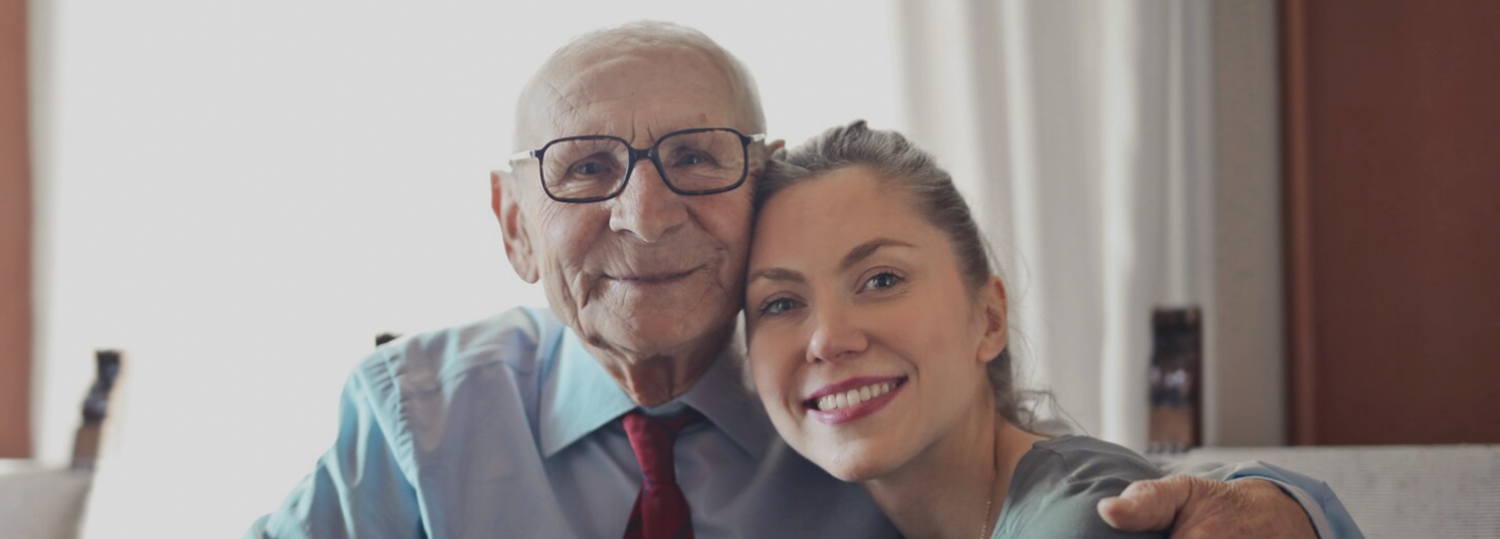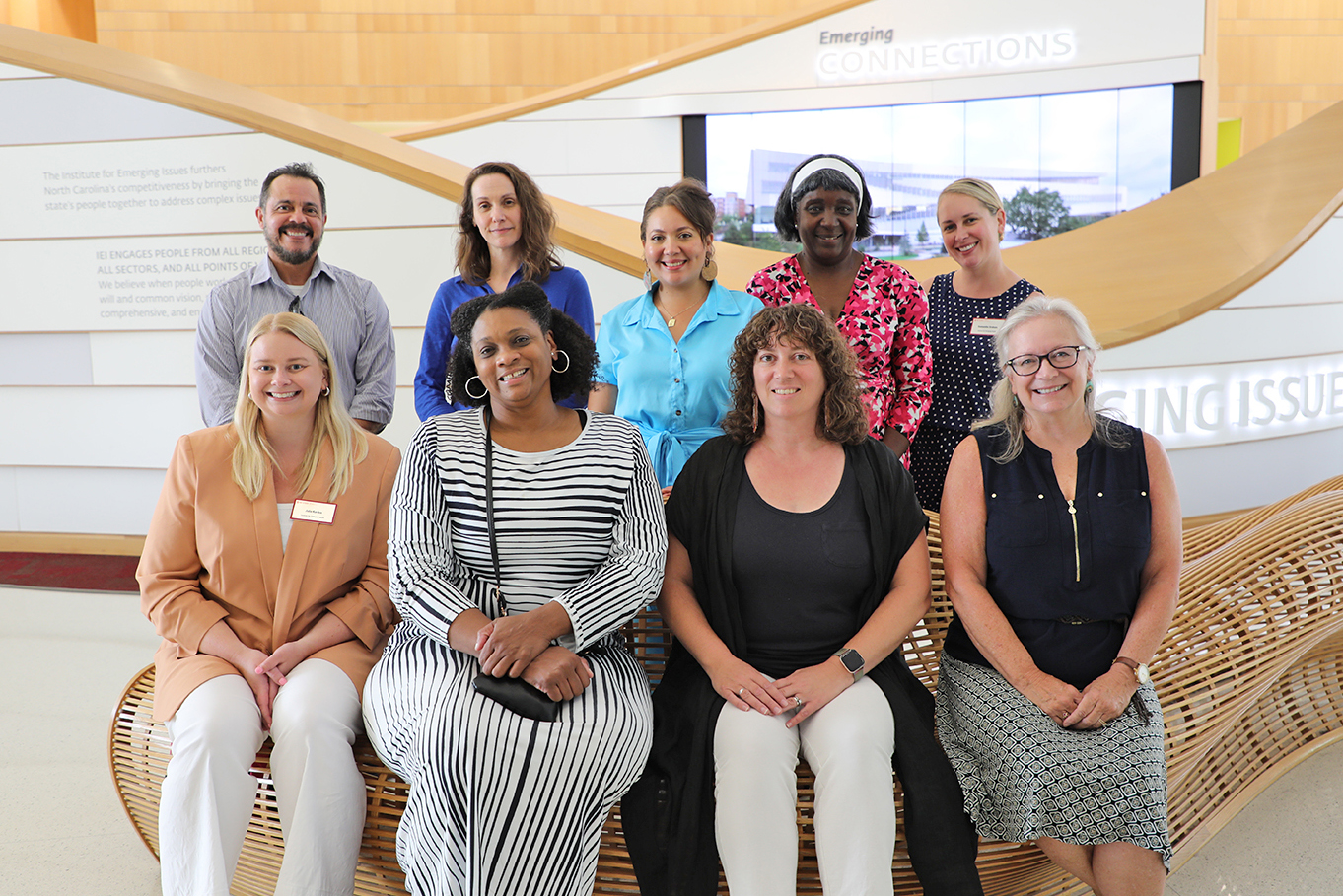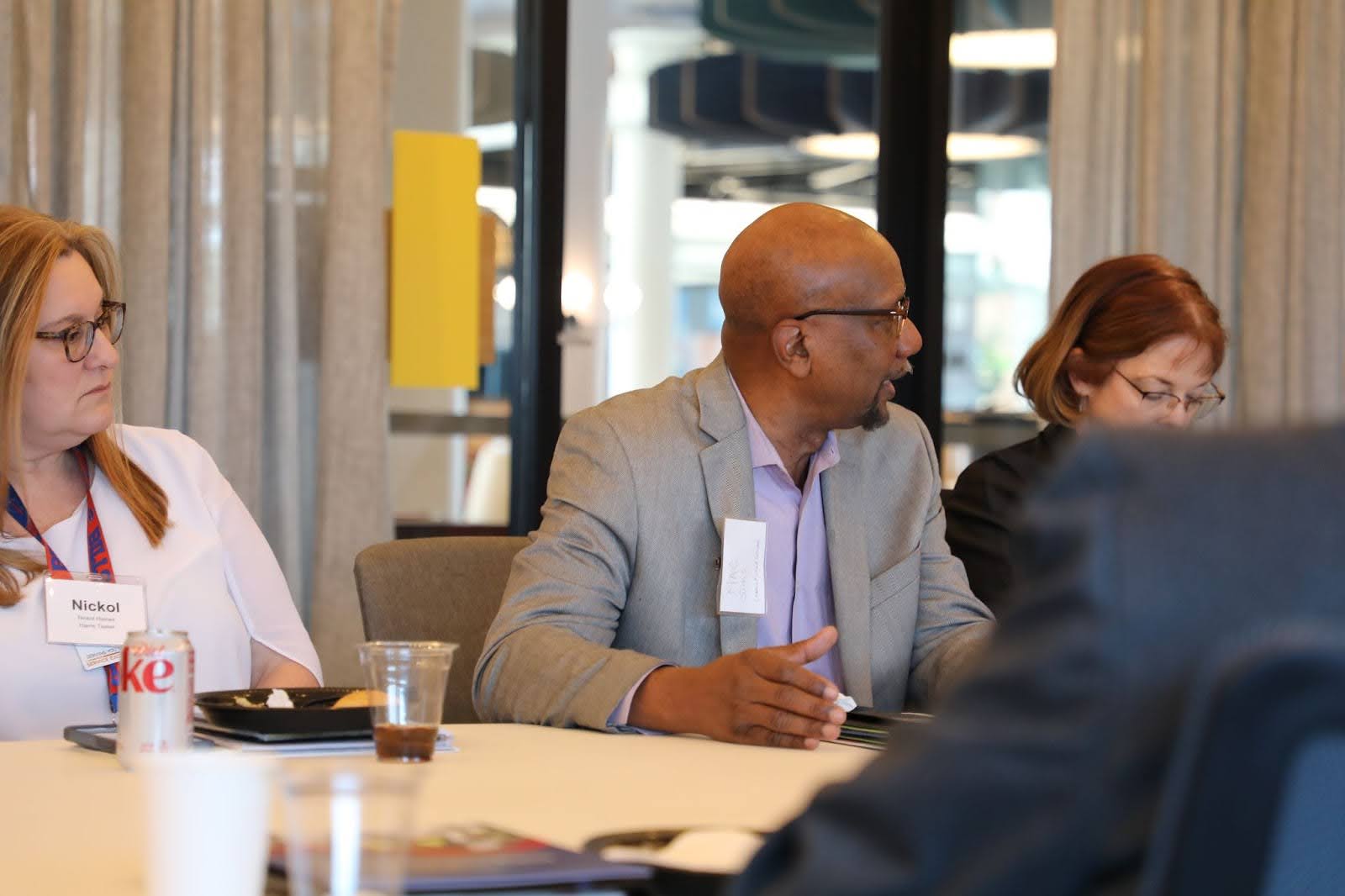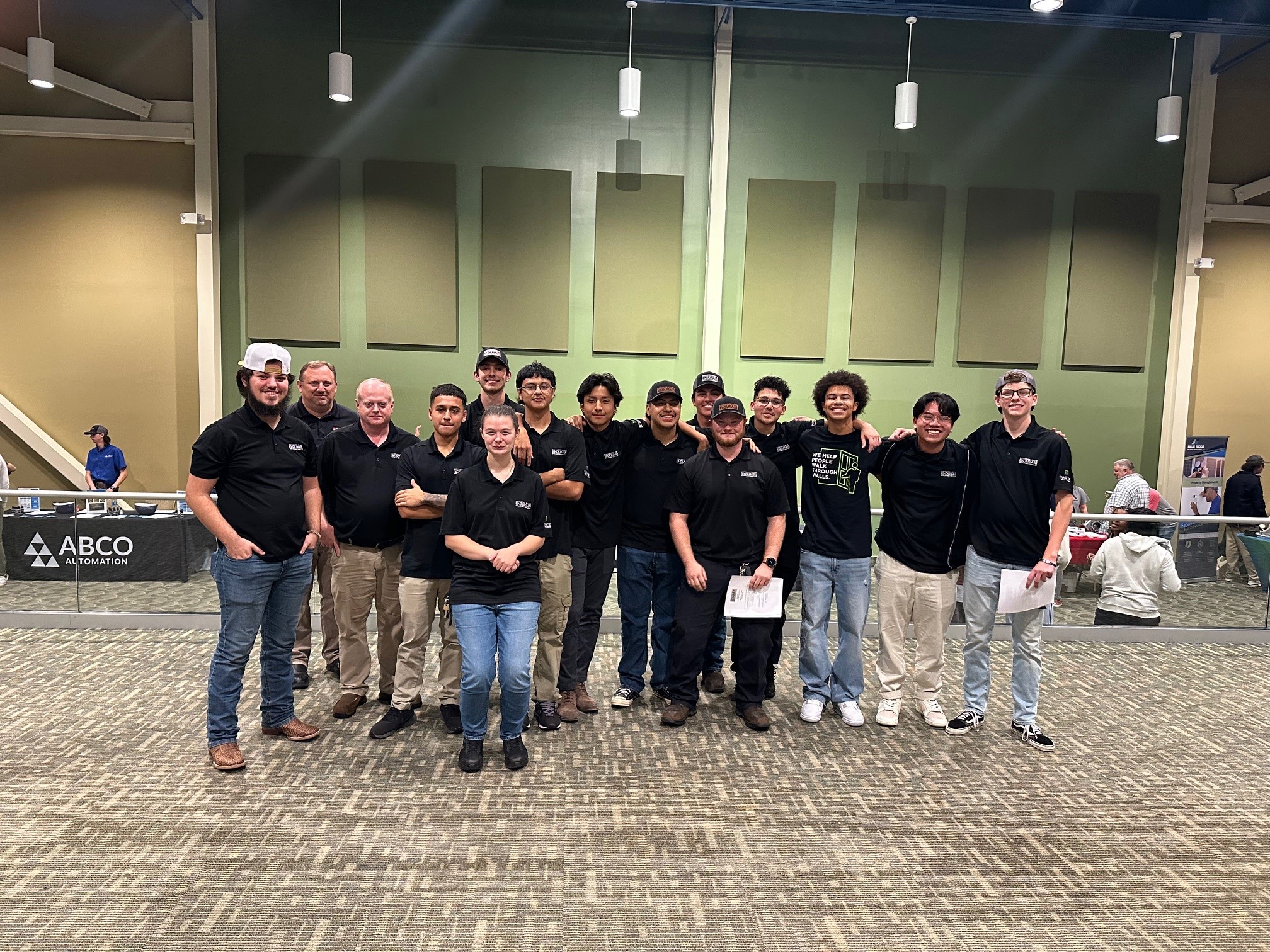Project Empathy (Reconnect Rural & Urban)

We live in fractious times, where so much media (now exquisitely tailored to capture our individual attention) compounds and often distorts both real and perceived problems. Through social media feeds, news aggregators and broadcasts, the more divisive voices get amplified, drowning out nuance and discussion.
Project Empathy tackles this issue by working to bring people together at a local level. Formed in 2016, they are a volunteer driven collaborative aimed at promoting civil, civic discourse and community engagement. Its “Time to Listen” and “Time to Talk” series bring together diverse perspectives in order to explore nuanced (and often contentious) issues. The collaborative, whose leadership now includes members from Transylvania County School system, sheriff’s & police departments, as well as organizations ranging from the NAACP to local churches, and non-profits like Sharing House and Bread of Life, was initially organized by Mark Burrows.
The idea for the project came to Mark while he was working as the Planning, Economic, and Community Development Director for Transylvania County. At the time, he and the planning board were developing a new comprehensive plan for the county. The planning board hosted a listening session in one of the more rural areas of the county, where many individuals expressed their frustration and asked why they weren’t getting the same services and interaction as other areas of the county. Though essential to the planning process, Mark saw this tension as indicative of a larger problem—that people, for a host of reasons, feel both angry and alienated from the greater community.
Though the underlying problems are often complex, Mark’s idea was simple: host an event, feed folks a meal and explore multiple facets of the issue through moderated discussion. With the support of the Planning Board Chairman Mike West and like-minded volunteers, Project Empathy hosted the first of its “Time to Listen” series at a local church. The first topic was “The Other,” and they called together individuals from local schools, law enforcement, faith and various community groups to hear a discussion focused on empathy and touching on topics related to Black Lives Matter and transgender rights. The event was so successful that it was repeated at Rosman Elementary, with a BBQ meal cooked by the sheriff.
It was at this point that Project Empathy came into its own, run by volunteers who worked to identify problems, concerns, or tensions within the community, with the goal of bringing disparate sides together in a public, civil discussion. Conversations focused on how individuals became “informed” on a particular topic, rather than debating the issue.
“Time to Talk about Guns” and, later, “Time to Talk about Bikes,” served two distinctive purposes, expanding public understanding and providing a safe place for individuals to share their perspectives on each topic. With “Time to Talk about Bikes” also provided the County Commissioners with information needed to approve the recently proposed Comprehensive Bike Plan. The format remained similar, with experts talking about health benefits and safety issues; advocates and detractors detailing the benefits of and problems with the local biking community.
“Time to Listen” took a more introspective and durable approach to discussion. Published in The Transylvania Times, the paper solicited public responses to three general questions: 1) what are you most proud of in this community; 2) what social problems do you observe; and 3) what are you personally doing to address those problems? Thirty-three residents responded and provided a wealth of views and ideas that were later summarized and shared with elected officials by Mark and others from Project Empathy.
More recently, Project Empathy has coordinated with NAACP and the Center for Spiritual Wisdom on a three-part series that, through Zoom technology, allows for discussions between Christian pastors, non-Christian believers, and civic leaders. In the first iteration, the “Time to Listen” asks six Christian leaders about the influences that shaped their lives, events that have tested their faith (e.g. impacts of COVID-19), spiritual connections to the world, how they conceive of Jesus, interactions they see between faith and race, and the applicability of the gospel to today’s political climate. In the coming months, the series will facilitate discussion between leaders of various religions, with the final session of this series bringing together community leaders to discuss their causes, backgrounds and reasons for engagement.
In practice, Project Empathy is both lean and adaptable. The events require very little in the way of money and can function in a broad variety of venues, recognizing that many individuals lack computers or technology to connect with others. While they enjoy pulling people together for a discussion and a meal, COVID-19 has forced them to explore technically mediated events, ranging from Zoom webinars to locally published pieces. They recognize that in this day and age, people engage through many different channels (e.g. in person, online, conventional press) and their project means to broadcast and listen through as many of those channels as possible.
Although the reach of their work is local, the idea of Project Empathy has ubiquitous application—because that idea can be replicated almost anywhere. The work of the project is to create a space where the community can describe itself; a space for deliberation and the civil discussion of ideas: complex and/or divisive. They do this by moderating, by calling together suitable speakers, finding differently accessible venues, and (when circumstances allow) preparing a meal for people. And while there is work in calling all this together, as Mark recounts, there is also a profound joy or gratitude in seeing a concerned group of people walk away from an event with less anxiety and greater understanding.
Written by Chris Kampe.
- Categories:


